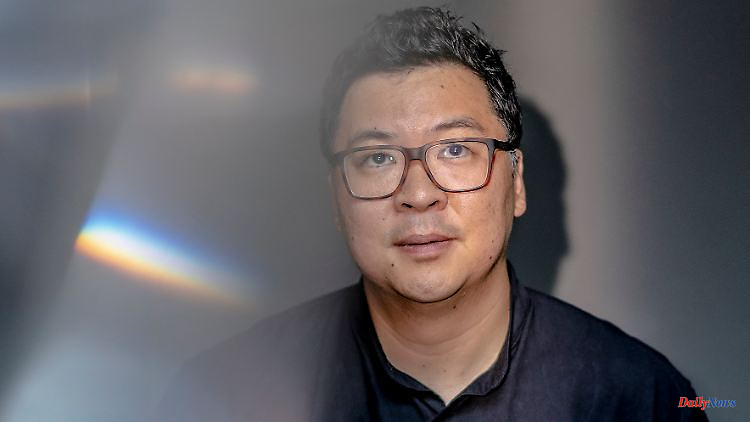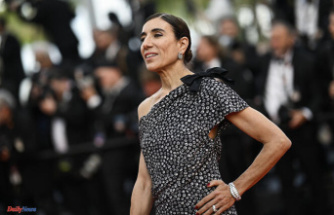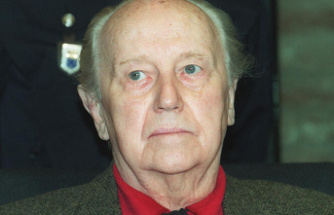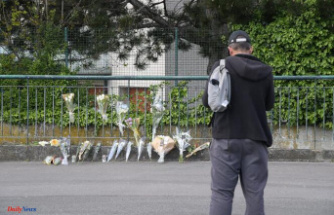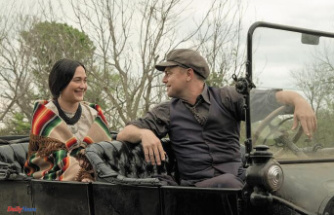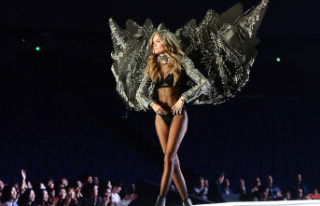Martin Hyun has already had to listen to a lot: "Slit Eye", "Fiji", "Play on the rice field" are even more harmless insults for the former professional ice hockey player. In "People of Germany" he tells his story together with 44 other people with a migration background.
Martin Hyun is a former ice hockey pro, author, founder and CEO of "Hockey is Diversity e.V.", studied, has a doctorate, married, taxpayer. So far, so normal to extraordinary. However, Hyun has often experienced that he is different from his teammates. An Asian looking guy on the ice? That didn't fit into the image of one or the other: Not yet on the ice, he was even prevented from entering it by a security guard because he couldn't believe that Martin was a player and not "the cook or the physiotherapist", like Martin Hyun at the book launch in the Dussmann department store.
"It just didn't seem right for him that someone like me could be one of the players." On the ice, Martin often has to be insulted further than an Asian dish and worse. Martin is a player in the German junior national team. Even his childhood dream comes true in the 2004/05 season: he becomes a professional player at his home club Krefeld Pinguine.
Martin's story is just one of 45 in the insightful book "People of Germany" about racism in everyday life. All stories are absolutely individual and yet they resemble each other in the most ugly way imaginable: The people in the book that Martina Rink and Simon Usifo published are all BIPoC (Black, Indigenous, People of Colour) and will become made for it, threatened, mocked, not taken seriously, disadvantaged. Since this situation has to change in our country, this book comes at a time when around a quarter of all Germans have a migration background, which is just the thing.
Racism is still an everyday reality in our seemingly liberal country. Only when the visions summarized in this book become reality can we speak of a cosmopolitan society. Until then, it's time to get to work! At work, in sports, on the bus and train - we all have prejudices. This in itself is not a crime, because women also have prejudices against women, tall men tease smaller ones, younger people smile at older people, older people don't take younger people seriously. But when the prejudices based on skin color or physiognomy become vital, for example because a man with the surname "Hyun" simply doesn't get a job even though he is better educated than many an "organic German", then things get down to business.
In a letter to his younger self, Hyun impressively describes what happened to him: "Dear Martin, (...) the life of a South Korean guest worker child is not fair. You have learned that education, language and hard work are not enough to to find a professional home. An invitation to an interview will remain a rarity. (...)"
Various justifications follow as to why Martin Hyun is not suitable for this or that job, and the range is frightening: from "not one hundred percent correct quality profile" to the statement that one doubts his "loyalty to Germany", everything is included. At the same time, Hyun's parents toil in the classic German way: the father worked underground as a miner, the mother as a nurse, of course mostly on night duty. They work for Martin, Julia and Simone. As you can see, Hyun's parents thought something about the first names - but it wasn't enough.
Martin Hyun describes his father as a kind of drill sergeant, but lovingly: he drives his son to do his best at school, before that he sends him around the sports field at six o'clock in the morning, then under the cold shower: "But believe me" , Hyun writes to his younger self, "He prepares you for the real world. Father gives you the tools to succeed in school, sport and professionally. He also shows you how you can be successful in life after sports. "
The father becomes friends with the ice champions in the stadium, takes on another job as a steward so that his son can go on the ice after the others' training and so that he can watch first-team games with his son. He becomes the "home" trainer, the mental supporter, the second pair of eyes for his son - everything so that he goes far. But Martin is not only athletic, he studies in the USA, Belgium and Bonn. He is doing his doctorate. He works up his story. He finds friends for life, he finds the woman for life - "a native Berliner!" - and he makes a decision after a trip to his parents' homeland: "You will give the generation that has remained silent in Germany a strong voice, you will write three books that deal with the subject."
Martin Hyun does everything right. He organizes the Olympic and Paralympic games in ice hockey in Korea, he works as a specialist in the ARD studio, he carries the Olympic torch a bit, and yet he comes to the conclusion that it's all useless to him, he gets no love and recognition , even if he is the best, if his origin and appearance mean only one thing to others: "Above all, invisibility, subservience and being docile - a person who plays no role politically, socially, culturally and athletically."
For that to change, we, who are not visibly migrants, have to listen. And read - in "People of Germany" there are 44 more incredible stories. It's time to rethink perspectives. we need each other

